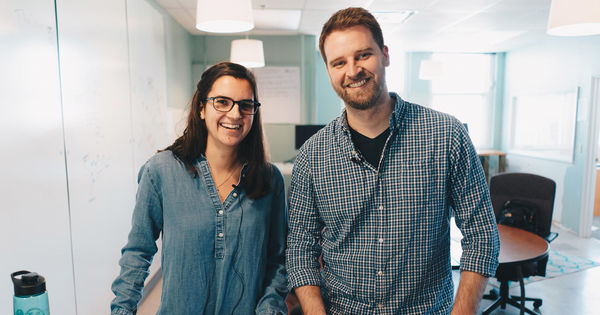 Lillian Piz, ESTEEM '20
Lillian Piz, ESTEEM '20
As odd as it may seem, when I decided to join the ESTEEM Class of 2020—made the call, signed the papers, sent in the deposit—I still wasn’t fully convinced that business was going to be for me. Flash forward 11-months later and I’ve worked on building two startups, will be starting work with a small healthcare company founded only a couple years ago, and have developed dreams that someday I too will be able to start my own company.
What changed my mind? Social entrepreneurship. As a prospective student considering ESTEEM, I distinctly remember having a conversation with David Murphy about my interest in the world of nonprofit and admitting that I had some negative preconceived notions about and biases against for-profit enterprises. I wanted to know whether I could drive social impact through business to an even greater degree than I had imagined I could do through science. Now, having completed an incredible personally and professionally transformative year with the ESTEEM program, I can see that what makes it unique is the way in which it empowers students to confront and act on important problems while looking through an entrepreneurial lens and tapping into our curious and experimental STEM natures. At the core of ESTEEM is its mission of “Fix Things That Matter” which fundamentally involves building meaningful connections and learning from those directly impacted by these problems. As a result, social entrepreneurship becomes inherently baked into the way that we learn about how to approach business; it is not about pursuing fame and financial gain at the cost of someone else, but about collaborating with passionate people to develop solutions which serve to lift up as much of society as possible.

While our Social Entrepreneurship course wasn’t until the Spring Semester, from the very first day of classes during the summer it was clear that ESTEEM valued social entrepreneurship and wanted to place these concepts in the foundation of its teaching. Our instructors for Entrepreneurial Thinking were Dustin Mix (ESTEEM ‘13) and Maria Gibbs (ND PhD ‘17). Dustin and Maria lead in making social impact through business with INVANTI, their South Bend-based startup generator. By identifying “the most pressing problems affecting Americans everyday” and finding “where entrepreneurship can be used to provide scalable solutions,” INVANTI has intentionally created a cascading effect. Their dedication to creating social impact can inspire others to follow that same calling.

Two weeks ago, we had our final Social Entrepreneurship class. We shared presentations about various social enterprises—from Warby Parker to Allbirds to Lush—using the Social Business Model Canvas. The class was our formal introduction to social entrepreneurship and was led by David Murphy, the executive director of ESTEEM and co-founder of Better World Books, a Benefit Corporation (B-corp). Throughout the semester, guest speakers were invited to talk with the class about their experiences as social entrepreneurs or as intrapreneurs within their respective companies. They also commented on how they’ve witnessed the corporate world changing over the course of the past few years in order to better integrate the ideals of corporate social responsibility. We covered topics such as business and mission alignment (led by Gibbs and Mix of INVANTI), Environmental Social and Corporate Governance (ESG) and impact investing (led by Brendan Maher, VP of Heron Foundation) and the landscape of today’s social enterprises (led by ND alum Jeff Woodward, a corporate lawyer at Taylor English Duma, LLP).
Most importantly, during my time in ESTEEM I saw a commitment to social entrepreneurship not only in my classes, but in my classmates—who have become close friends—who have taught me a tremendous amount this year about what it means to stand up for what you believe. One of my classmates is working at the intersection of tech and social issues to develop a software meant to facilitate improved communication between police officers and community groups. Another is developing a data science curriculum for high schools to help close the gap between growing job opportunities in tech and the lack of technical preparation in school, starting in South Bend. I even had the privilege of working with one of my classmates on our own startup aimed at helping to promote the inclusion of women of color in business. These are the stories and the experiences I will remember years from now when I think about what I learned this year.
It’s certainly not easy to “Fix Things That Matter,” but ESTEEM helped me realize that it’s absolutely possible.